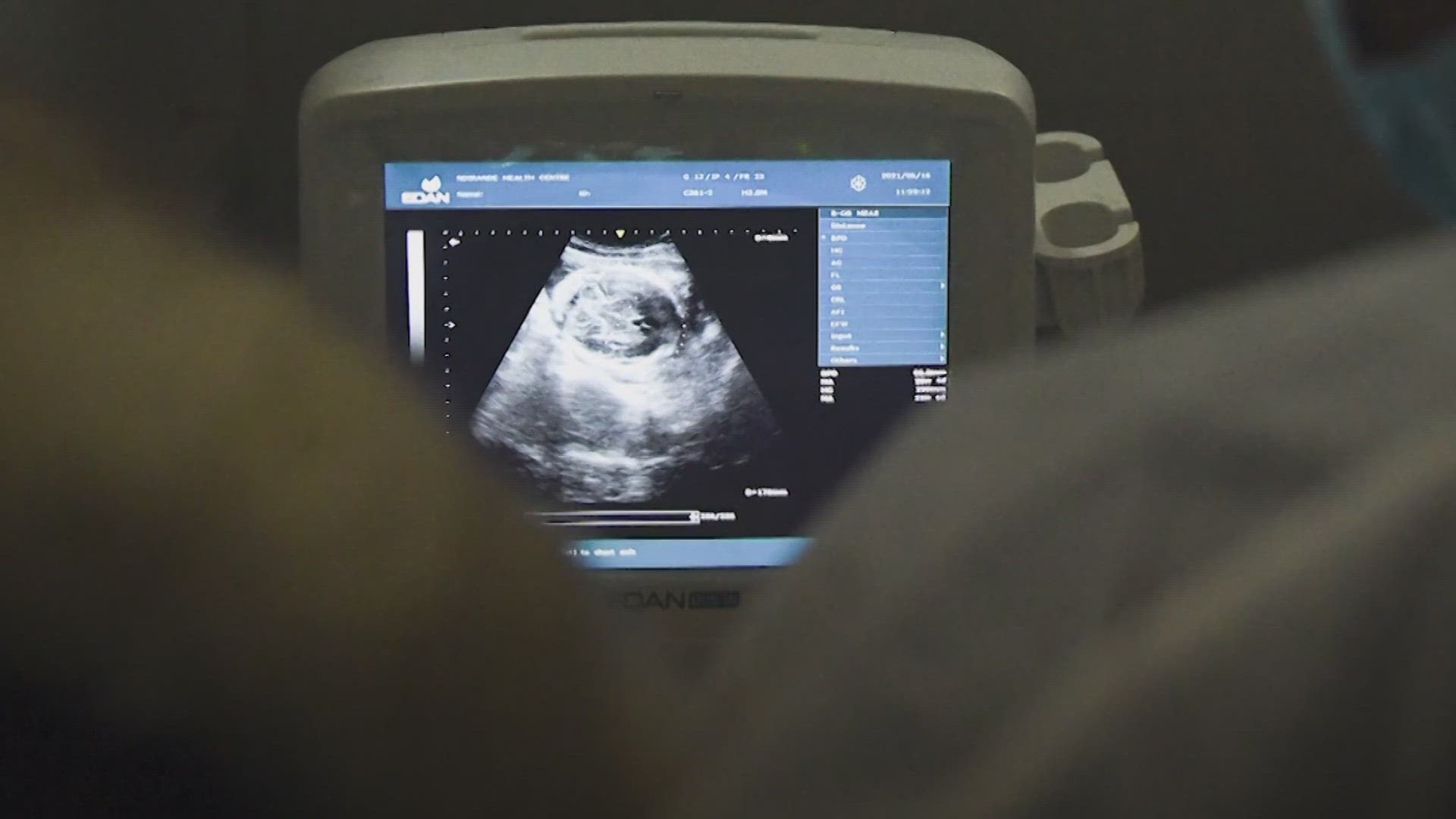AUSTIN, Texas — Abortion rights supporters hoped the Texas Medical Board would provide clearer guidance on medical exceptions for abortions in the state.
Instead they say a Friday meeting in Austin left physicians and patients as concerned as they were before the meeting began. Right to life groups, however, thanked the board for clarifying what they believe is already a statute that is clear enough.
"Our doctors having no guidance on what to do has caused so much suffering. And I really hope this suffering doesn't have to continue," said Taylor Edwards, who is among 13 women who sued the state of Texas.
Edwards fled the state to receive an abortion of her non-viable pregnancy in 2023 because her own local doctors feared legal prosecution.
"They were unable to give me an abortion because they risk life in prison and losing their medical license. No one should have to risk that to give medical care. It shouldn't be something that's even an option," Edwards said in her Friday testimony to the Texas Medical Board.
That's why attorneys Steve and Amy Bresnen asked the Texas Medical Board to clarify the Texas abortion law and provide a list of exceptions that do and do not keep a doctor out of legal jeopardy.
"You've got people that are scared to death. They are facing death and they are scared to death," Steve Bresnen said. "And we think that you could do more than your proposed rule would do. In that sense we're disappointed."
Disappointed because they did not get that list.
The medical board clarified terms and definitions for a "medical emergency" exception to Texas abortion law as "a life-threatening physical condition aggravated by, caused by, or arising from a pregnancy that, as certified by a physician, places the woman in danger of death or a serious risk of substantial impairment of a major bodily function unless an abortion is performed."
"There is abundant documentation that physicians are confused and frightened," said Ingrid Skop, MD from San Antonio. "I just think doctors need to know that they are supported. Because they feel like they are alone making these decisions and that's why we're seeing so much confusion and sometimes bad decision making."
"While we are hopeful that the Texas Medical Board will take seriously this opportunity to help clarify the medical exception to Texas's abortion ban, its current proposal falls short of that goal," Molly Duane, the senior staff attorney at the Center for Reproductive Rights said in a written statement. "The proposed rules also create a new and extremely burdensome documentation system that physicians must use when providing abortions under the exception that includes documenting whether there was 'adequate time to transfer the patient' 'by any means available' to a different facility to avoid having to perform an abortion. This is not what medical providers and patients need."
"Texas' pro life laws clearly permit physicians to intervene when a pregnant woman's life or major bodily function is jeopardy because of her pregnancy," said Rebecca Weaver, the legislative director for Texas Right to Life. "We appreciate your actions to clarify this for physicians. None of us want women being put unnecessarily at risk when the law is clear about taking action," she said in her testimony at the Friday hearing. "This confusion is unnecessary and we are pleased that you have chosen to help clear the confusion."
Texas Right to Life president Dr. John Seago, in a written response, echoed that trust in the current language of Texas abortion law.
"We are pleased that the Texas Medical Board is taking this issue seriously and reviewing rules to help our medical professionals know how to follow Pro-Life laws and to immediately treat mothers and their children in emergencies," Seago said.
As for women like Taylor Edwards, who is pregnant again, a healthy pregnancy that she says was only possible because she was able to receive a safe abortion out of state, a doctor's "reasonable medical judgment" is still what the Texas Medical Board recommends as the standard for abortion-related decisions.
"What we are hoping is that by giving clarification that we are yielding to medical judgment, to reasonable medical judgment, that you should hopefully not get into a scenario like that ever again," said Texas Medical Board chair Dr. Sherif Zaafra in direct response to Edwards' testimony.
The language and guidance proposed by the Texas Medical Board is not final.
After Friday's testimony, the board could vote at the next board meeting in June or continue discussion through October if substantive changes are adopted.
More Texas headlines:

